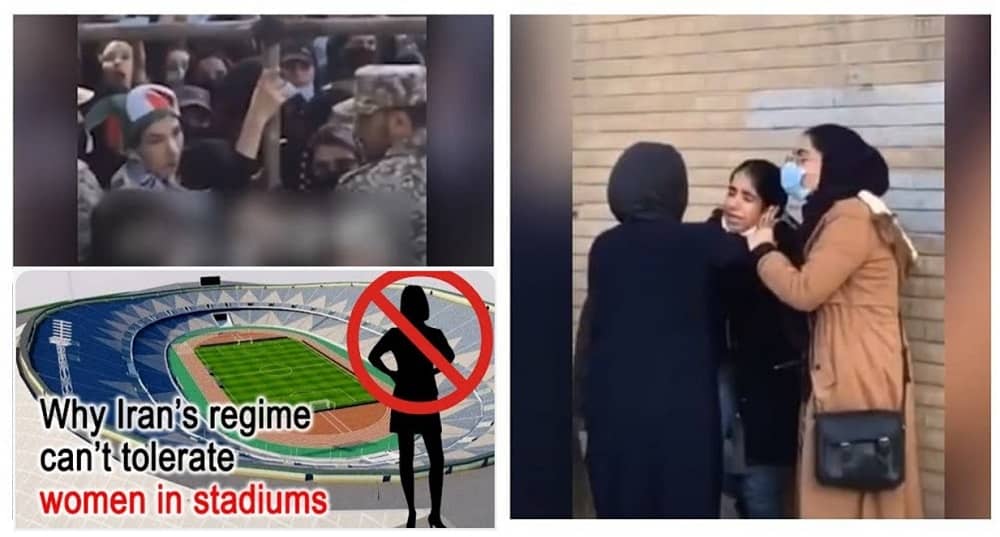
People’s Mojahedin Organization of Iran – MEK IRAN YouTube channel has published an informative video about the Iranian regime’s oppose to the presence of women in the football stadiums.
As follows as is the full video, and its text:
On March 29, Iranian security forces attacked hundreds of women soccer fans seeking to enter a stadium in Mashhad for a World Cup 2022 soccer qualifying match between Iran and Lebanon. The regime’s oppressive security forces used tear gas and pepper spray to disperse the crowd.
Regime officials had sold around stadium tickets to 2,000 women, according to state-run news outlets. The Iranian Football Federation, however, claimed on the same day that only nine women had purchased match tickets. This bears the signs of the mullahs’ regime attempting to deceive FIFA by reporting the sale of 2,000 tickets to Iranian women, while in practice preventing the women from entering the stadium.
“We were following orders from Tehran,” said the regime’s governor in the city of Mashhad to state media.
Social media reports and video footages showed women being refused entry, and many choking and crying following the security forces’ raid outside Mashhad’s Imam Reza stadium.
Women in Iran have been barred from attending soccer matches by the ruling mullahs’ regime since the 1979 revolution. Banning women from sporting events is part of the regime’s wider misogynistic policies, which deprive women and girls from their most basic rights in education, employment, politics, and other important social activities.
In October 2019, under pressure from FIFA, the Iranian Football Federation permitted only a selective and very restricted number of women into a stadium for a World Cup qualifying match against Cambodia. Reports at the time indicated that the entire scheme was nothing but a state-directed sham. It was the first time that Iranian women bought tickets and went to watch a football/soccer game, not being forced to disguise as men, but as football-loving women.
Prior to that, in September 2019, FIFA threatened to suspend Iran’s football team if the regime continued to bar women’s access to matches. FIFA ordered Iran to allow women access to stadiums without restriction and in numbers to be determined according to demand for tickets.
The measure followed the self-immolation of Sahar Khodayari, also known as the Blue Girl, in September 2019 in protest to a six-month jail sentence issued by the regime’s so-called judiciary for bypassing the ban on women’s entry into sports stadiums.
It was hoped that women would be permitted to attend matches in stadiums afterwards. But the Iranian Football Federation has not allowed women into stadiums under a variety of pretexts.
Women were to be allowed in the stadium again in early October 2020 for a World Cup qualifier against South Korea, only to see a late decision force the event to be held behind closed doors amid the coronavirus pandemic.
The March 29 attack on soccer fans proved, once again, the true nature of this misogynist and oppressive regime ruling Iran. But the issue of football and women’s presence in stadiums has evolved into an outpouring international crisis for the regime.
Mohammad Bagher Ghalibaf, Speaker of the Iranian regime’s Majlis (Parliament), described this subject as “illogical,” ordering the Majlis Domestic Commission to resolve the matter. The head of the regime’s judiciary was particularly fuming in his remarks, saying “officials should have used their minds” and prevented such a challenge for the regime’s entire apparatus.
Regime officials are making such remarks as they are extremely afraid of social tensions boiling into another nationwide uprising that will overthrow the mullahs’ rule. And being among the key victims of systemic misogyny in Iran, women are spearheading the fight for freedom and equality, which makes them an even more dangerous threat to the mullahs’ regime.